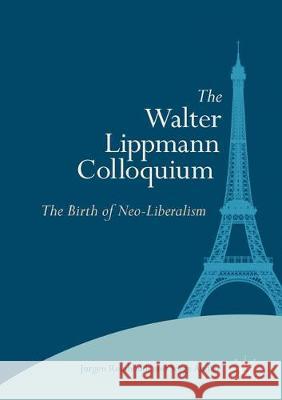The Walter Lippmann Colloquium: The Birth of Neo-Liberalism » książka
topmenu
The Walter Lippmann Colloquium: The Birth of Neo-Liberalism
ISBN-13: 9783319881232 / Angielski / Miękka / 2018 / 212 str.
Kategorie BISAC:
Wydawca:
Palgrave MacMillan
Język:
Angielski
ISBN-13:
9783319881232
Rok wydania:
2018
Wydanie:
Softcover Repri
Ilość stron:
212
Waga:
0.23 kg
Wymiary:
21.08 x 20.57 x 1.02
Oprawa:
Miękka
Wolumenów:
01











